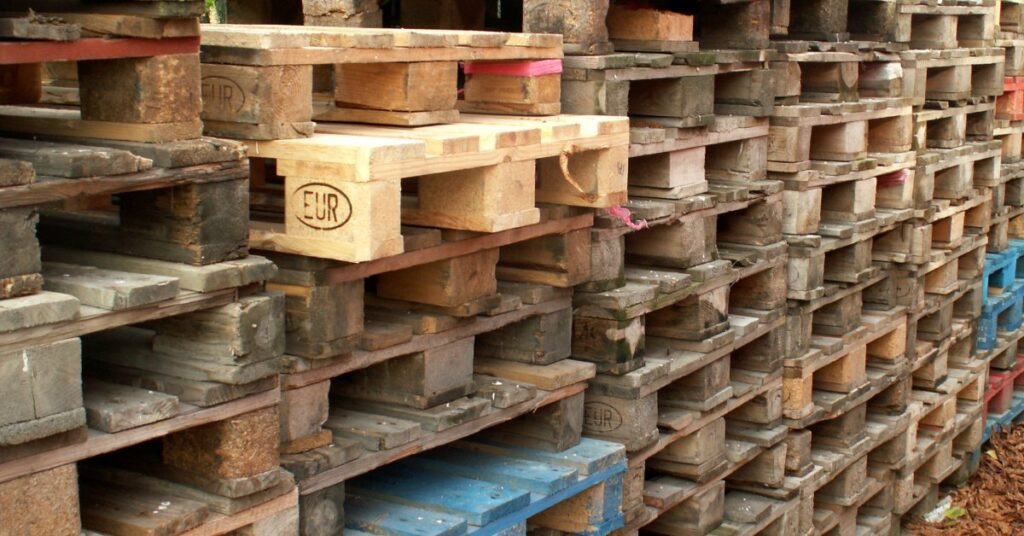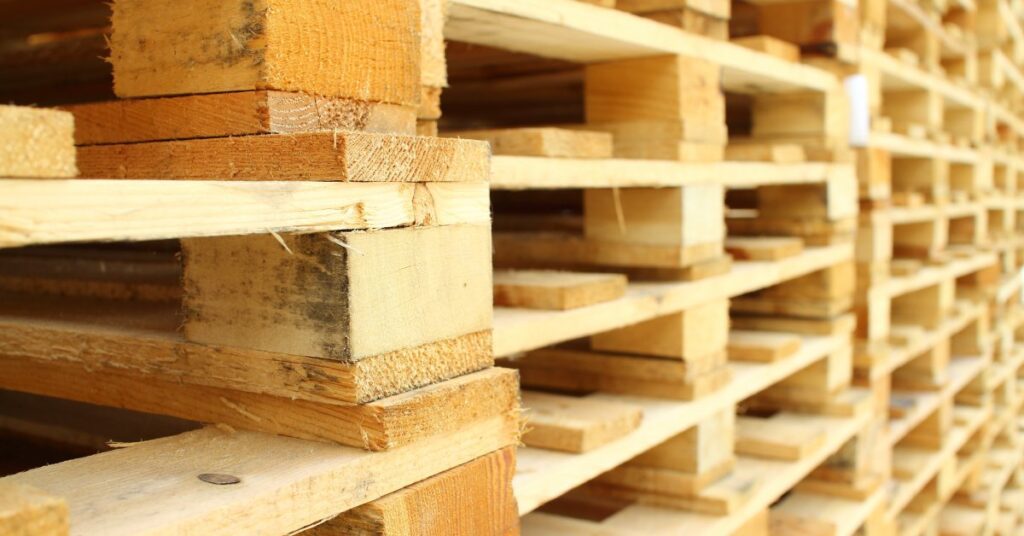Recycling is one of the best ways for large-scale operations to make a positive impact on the environment. More industries are prioritizing recycling to increase their sustainable operations. Despite many logistics businesses like warehouses or retail stores utilizing wooden pallets, it’s easy to overlook their environmental benefits and how businesses can utilize them in an eco-friendly way.
Logical Logistics understands how recycling pallets can help the environment, and we want your business to improve by providing in-depth information about this practice. We’re here to go over the processes involved and why this is a great option for eco-conscious businesses.
The Role of Wooden Pallets in Business Logistics
Wooden pallets are one of the most common parts of the average supply chain. They provide a sturdy foundation for transporting goods. Wooden pallets are durable, cost-effective, and popular options because of how well they handle repeated use. However, there are some issues when companies don’t properly dispose of worn pallets after repeated use.
When pallets break down, companies frequently dispose of them, adding volume to landfills. This makes them a critical target in waste management practices. Wooden pallets present unique opportunities, as companies can recycle, repair, or repurpose them to help extend their lifecycle in a sustainable way.
The Environmental Issues Posed by Pallets in Landfills
Waste management is a major environmental concern, and pallets can pose a big problem when companies don’t dispose of them properly. A single business might dispose of thousands of tons of damaged or unused pallets annually. When pallets end up in landfills, they become sources of preventable waste, occupying space that would otherwise go to nonrecyclables.
It’s also a good idea to consider some of the environmental consequences. Decomposing wood can release carbon dioxide into the atmosphere. Taking steps to recycle or reuse reduces this possibility and shifts pallets into a more sustainable lifecycle.
Conserving Trees Through Pallet Recycling
Most wooden pallets utilize hardwood or softwood, both of which we can source from natural forests. Demand for pallets can put a strain on the industry, and even with specialized tree farms for construction, it can lead to deforestation issues.
Recycling pallets gives these tree farms a chance to grow new trees while companies reuse or repurpose pallets. This reduces the reliance on logging and helps promote conservation. Every pallet that we recycle or reuse limits environmental damage and gives farms opportunities to replenish their supplies.

Reducing Energy Usage in Pallet Production
Producing new wooden pallets consumes substantial energy, from the tree harvesting stage to processing and manufacturing. Running the machinery that saws, assembles, and transports pallets utilizes a lot of fuel or other energy resources. Recycling used pallets eliminates the need for this complete production cycle, significantly reducing energy waste.
The idea is that by recycling, businesses contribute to lowering energy-dependent manufacturing processes and support a shift toward energy efficiency across multiple industries. Lower energy consumption translates to reduced greenhouse gas emissions and a more sustainable logistical chain.
Repairing Versus Disposing of Pallets
Recycling doesn’t always mean breaking an item down to make new raw materials. The process can also include repairing items to restore them to a functional state. Wooden pallets are perfect options for repairing rather than full disposal. If you can fix a pallet by replacing a few boards, it’s far more environmentally conscious than breaking down and recycling the whole thing.
Repairing damaged pallets not only saves costs for businesses but also minimizes waste. A single panel replacement extends the pallet’s lifespan, allowing companies to use them multiple times. It’s a beneficial practice that prevents the premature discarding of pallets and helps maintain practical, low-cost sustainability.
Creating Secondary Uses for Recycled Pallets
One of the most exciting aspects of pallet recycling is the process’s versatility. Nonfunctional pallets can still find second lives in other industries. Some businesses may upcycle pallets to make furniture like tables, benches, or shelving units. Other companies may use them for small construction projects or fencing.
Recycling businesses may shred old pallets to create wood chips or mulch that can benefit landscaping, gardening, or public parks. Repurposing pallets prevents waste from piling up and allows for creative and eco-conscious applications of materials that would otherwise go unused.
Supporting a Circular Economy
Another way recycling pallets can help the environment is by contributing to a circular economy. Unlike the traditional linear economy that relies on producing, consuming, and disposing of products, a circular economy emphasizes resource conservation and waste reduction. Recycling keeps pallets in the cycle through reuse, repair, or repurposing.
Some pallet supply companies, including Logical Logistics, specifically offer pallet trade-in programs, allowing companies to give back worn-down pallets in exchange for new ones. As a supply company, we repurpose or reuse pallets rather than needing to bring in new materials. This approach creates more value from existing resources while avoiding the environmental pitfalls of overproduction and excess waste.
Cost-Savings Opportunities for Eco-Conscious Businesses
Cost is a driving factor for many companies looking to make sustainable business decisions. Fortunately, recycling pallets is not only an affordable option, but it comes with some clear financial advantages. Purchasing new pallets regularly adds up, but recycling and repairing existing ones can significantly reduce expenses. Reuse programs, initiated either internally or through collaboration with recycling partners, decrease the need for new pallet acquisitions.
Reusing pallets can also save money on waste disposal. Dumping pallets in landfill sites comes with its own costs, making recycling a more economical long-term strategy. Freeing up resources in this way enables companies to redirect budgets toward more impactful environmental initiatives.

How To Start Recycling Pallets in Your Business
Adding a pallet recycling system to your business operations is a straightforward process. The first step involves looking at your current waste management processes and figuring out how many pallets you’re getting rid of on a regular basis. You can set a goal to recycle or reuse a certain percentage of pallets across a dedicated timeline to reduce unnecessary disposal.
It’s also a good idea to reach out to a local pallet recycling company such as Logical Logistics. We offer pickup services for used pallets, making it easier for you to transition from disposal to recycling.
Make a Commitment to the Environment
Recycling pallets is a practical, impactful step toward turning your business into a more environmentally conscious enterprise. You can reduce deforestation, conserve energy, and cut costs along the way.
Join Logical Logistics today and make a difference in your operations! Explore our range of second-hand wooden pallets for sale to meet your business needs while promoting sustainability. Partner with us to help reduce waste, save resources, and build a better, greener future for your business.

